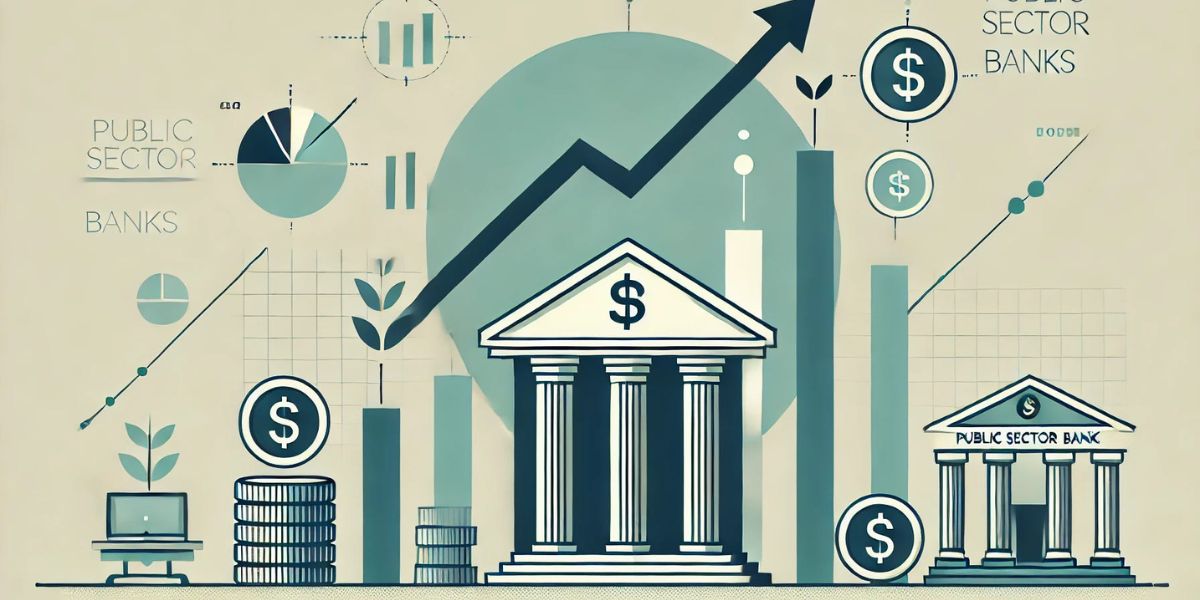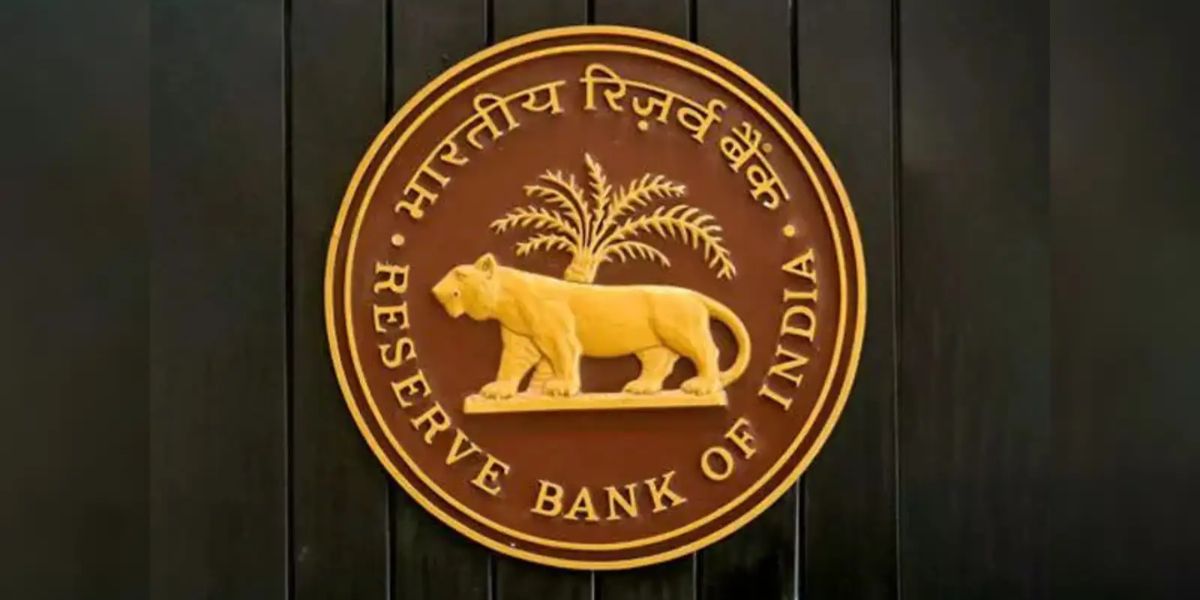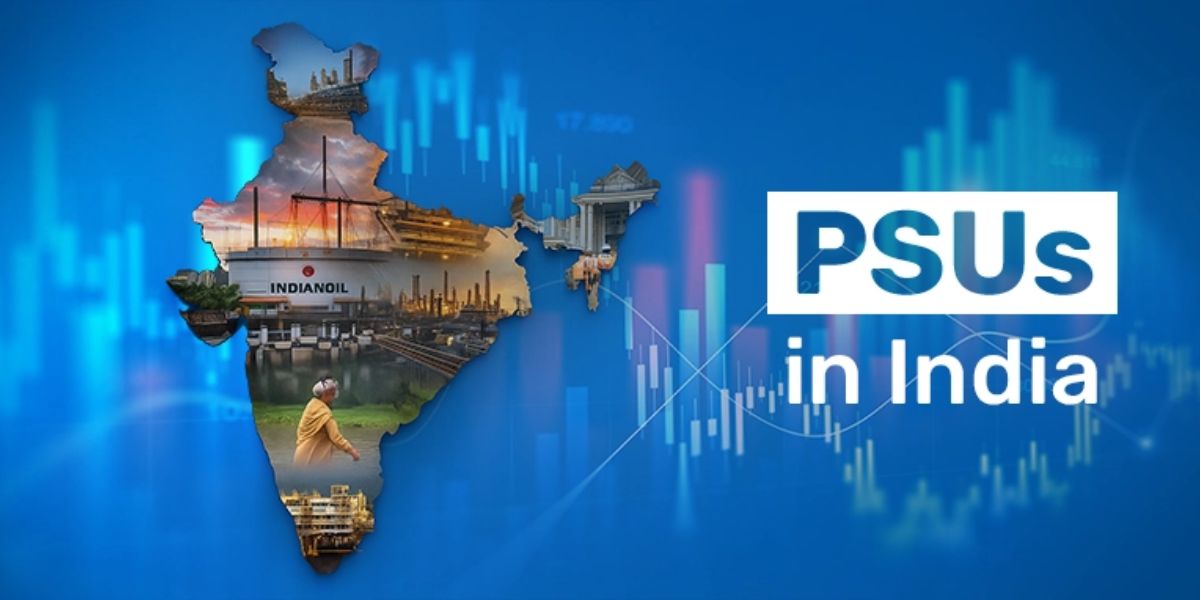As India rebuilds its economy in the wake of global disruptions, public sector banks (PSUs) have emerged as the backbone of financial stability and inclusive growth. These banks, which account for a large share of India’s banking assets and credit distribution, play a crucial role in driving development, supporting small businesses, and ensuring that growth reaches every corner of the country. Understanding their importance offers valuable insight into how India’s economic recovery is being shaped from the ground up.
The Backbone of India’s Financial System
Public sector banks form the foundation of India’s banking network, with institutions like State Bank of India (SBI), Punjab National Bank (PNB), Bank of Baroda (BoB), and Canara Bank leading the charge. They not only hold the trust of millions of Indians but also handle a vast majority of the nation’s deposits and loans.
Table of Contents
PSU banks play a crucial role in ensuring liquidity and access to credit in rural and semi-urban regions—areas that are often underserved by private institutions. During times of economic slowdown, their ability to provide steady lending and financial inclusion acts as a stabilizing force for the entire economy.
How PSU Banks Stimulate Economic Growth
PSU banks contribute to India’s economic recovery through various channels, from financing infrastructure projects to supporting small businesses and agricultural development.
Credit Support to MSMEs
Micro, Small, and Medium Enterprises (MSMEs) are often described as the “engine” of India’s economy. PSU banks have been instrumental in providing credit to these sectors, particularly through government-backed schemes like the Credit Guarantee Fund Trust for Micro and Small Enterprises (CGTMSE) and the Emergency Credit Line Guarantee Scheme (ECLGS).
By extending financial assistance during critical times, PSU banks have helped countless small businesses survive disruptions and restart operations post-pandemic. This steady flow of credit has been key to maintaining employment levels and stimulating demand across sectors.
Funding Infrastructure and Industrial Development
Infrastructure development remains central to India’s growth agenda, and PSU banks are major financiers of large-scale infrastructure projects. From highways and railways to renewable energy and manufacturing hubs, their funding has a multiplier effect on job creation and productivity.
For instance, SBI and Bank of Baroda have financed several government-led infrastructure projects under the National Infrastructure Pipeline (NIP). These investments not only generate employment but also create long-term assets that drive future economic growth.
Supporting Agriculture and Rural Development
PSU banks, particularly through institutions like the National Bank for Agriculture and Rural Development (NABARD), play a major role in financing rural development. By supporting agricultural loans, irrigation projects, and farmer welfare schemes, these banks ensure that India’s rural economy remains resilient and productive.
Schemes such as the Kisan Credit Card (KCC) program, largely implemented through PSU banks, have empowered farmers with accessible credit, reducing dependency on informal lending systems and ensuring financial inclusion in rural areas.
Ensuring Financial Inclusion and Stability
One of the most critical contributions of PSU banks is their role in promoting financial inclusion. Through initiatives such as the Pradhan Mantri Jan Dhan Yojana (PMJDY), PSU banks have brought millions of unbanked citizens into the formal financial system. This widespread inclusion ensures that economic growth benefits not just urban centers but also rural communities.
Moreover, PSU banks have introduced digital banking services, mobile apps, and online lending platforms to enhance accessibility for all citizens. This has improved transparency, reduced transaction costs, and fostered trust in the financial system.
Government and Regulatory Support
The Indian government and the Reserve Bank of India (RBI) have implemented several reforms to strengthen PSU banks and enhance their contribution to the economy. These include recapitalization initiatives, mergers for efficiency, and improved governance frameworks.
The bank recapitalization program, for example, provided thousands of crores in capital support to PSU banks to improve their balance sheets and lending capacity. Meanwhile, mergers like those between Bank of Baroda, Vijaya Bank, and Dena Bank have created stronger institutions capable of supporting large-scale national initiatives.
Challenges Facing PSU Banks
Despite their achievements, PSU banks face several challenges in maintaining efficiency and competitiveness. Non-performing assets (NPAs), compliance burdens, and technological gaps remain concerns. However, recent improvements in asset quality and digital transformation initiatives have helped restore public confidence.
The introduction of digital loan processing systems, artificial intelligence-based fraud detection, and centralized credit monitoring has allowed PSU banks to improve operational efficiency while reducing risk.
The Road Ahead: PSU Banks and India’s Economic Future
Looking forward, PSU banks are expected to play a key role in achieving India’s target of becoming a $5 trillion economy. Their focus will continue to be on inclusive lending, sustainable development, and digital innovation. As India shifts towards clean energy, smart cities, and infrastructure modernization, PSU banks will remain critical financial enablers.
With improved balance sheets, digital capabilities, and strategic reforms, PSU banks are better positioned than ever to drive growth across sectors—from industry and agriculture to green financing and entrepreneurship.
Conclusion: The Pillars of India’s Economic Revival
Public sector banks have proven their resilience and adaptability through economic challenges, acting as the foundation of India’s recovery efforts. Their continued commitment to supporting small businesses, farmers, and infrastructure projects ensures balanced growth across all regions of the country. As India accelerates toward economic expansion, PSU banks will remain not just financial institutions but key pillars of national development.
Want to read more about PSU banking trends and reforms? Explore expert analyses, insights, and updates at IndiaPublicSector.com.










